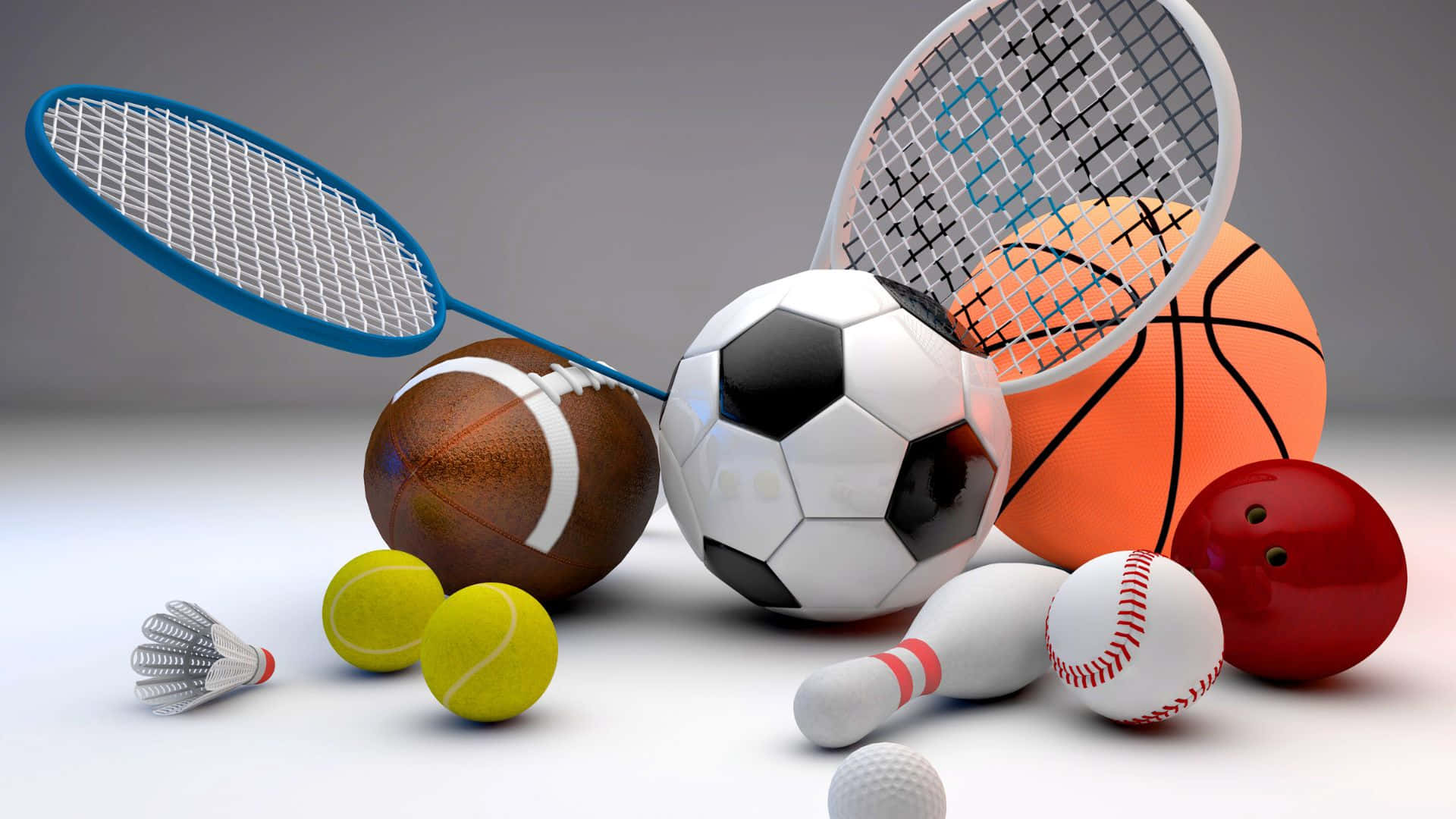Sports in Society: Captain Beatty’s Perspective on Athletic Benefits
Why captain Beatty believe sports benefit society
In Ray Bradbury’s dystopian novel” Fahrenheit 451,” captain Beatty represent authority and the status quo. His character offer compelling arguments about why sports serve as a beneficial force in society. Though fictional, Beatty’s perspective mirrors many real world arguments about athletics’ societal value. His views highlight how organized physical competition functions equally more than mere entertainment — it operates as a social institution with far reach impacts.
The distraction mechanism
Captain Beatty view sports mainly as a powerful distraction mechanism. In his worldview, athletic competitions occupy the public’s attention and energy, direct it off from potentially disruptive intellectual pursuits. ” Give the people contests they win by remember the words to more popular songs,” bBeattyexplain in the novel, draw parallels between simple entertainment and sports competitions.
This perspective isn’t altogether cynical when apply to modern society. Sports provide:
- Share experiences that unite diverse populations
- Common topics of conversation across social divides
- Emotional outlets that might differently manifest destructively
- Regular rhythms and routines that structure community life
While Beatty frame this distraction negatively, many sociologists recognize the legitimate social cohesion sports create. When communities rally around local teams, they develop stronger bonds and share identity markers that transcend other differences.
Promote social order and stability
Beyond mere distraction, Beatty appreciate how sports reinforce social order. Athletic competitions operate within strict rule systems, teaching participants and spectators like to respect authority, follow protocols, and accept outcomes determine by established standards.
The structured nature of sports cultivates:
- Respect for referees and officials as authority figures
- Acceptance of standardize rules govern behavior
- Understanding of consequences for rule violations
- Recognition of hierarchies base on merit and performance
From Beatty’s perspective, these lessons transfer efficaciously into broader society. Citizens who learn to operate within the boundaries of sports rules more pronto accept similar constraints in civic life. The captain would argue this create more predictable, manageable communities with reduce social friction.

Source: rebellionresearch.com
Channel aggressive impulses
Beatty recognize humanity’s inherent competitive and sometimes aggressive nature. Instead than suppress these impulses solely, sports provide sanction outlets for competitive drives. This control environment allows for the expression of dominance, physical prowess, and victory without the destructive consequences these impulses might differently produce.
The sublimation of aggression through sports offer several benefits:
- Reduction in random violence and antisocial behavior
- Transformation of potential conflict into regulated competition
- Development of healthy cope mechanisms for frustration
- Establishment of socially acceptable paths for ambition
For authority figures like Beatty, this channel function serves the dual purpose of acknowledge human nature while constrain its potentially disruptive expressions. Sports become a pressure valve for societal tensions.
Reinforce cultural values
Peradventure virtually importantly, Beatty values how sports reinforce dominant cultural values. Athletic competitions celebrate attributes like:
- Discipline and consistent effort
- Teamwork and sacrifice for collective goals
- Resilience in the face of setbacks
- Respect for tradition and established processes
- Meritocratic advancement base on demonstrate ability
These values align absolutely with maintain social stability. When young people internalize these lessons through sports participation, they typically become citizens who uphold instead than challenge exist systems. The captain would view this as create a more harmonious, productive society.
Building physical capability and health
On a practical level, Beatty recognize the physical benefits sports provide. Athletic populations tend to be:
- Healthier and less dependent on medical resources
- More physically capable of productive work
- Advantageously equip to serve in protective roles when need
- More energetic and less prone to lethargy
From a governmental perspective, these outcomes reduce burdens on social systems while produce more capable citizens. The physical discipline sports require translate to other areas of life, create populations that manage themselves more efficaciously.
Provide clear success metrics
In Beatty’s order worldview, the clarity of sports outcomes hold particular appeal. Unlike subjective pursuits like art or philosophy, athletic competitions produce unambiguous results:
- Definitive winners and losers
- Measurable performance metrics
- Clear progression pathways
- Objective achievement standards
This clarity appeals to authority figures who prefer define social hierarchies. When success criteria remain transparent and wide accept, social mobility occur without disrupt fundamental structures. Citizens focus on advancement within the system quite than question the system itself.
Create heroes and role models
The captain understand the power of cultural heroes in shape social behavior. Sports course produce celebrate figures who embody societal ideals. These athletic icons:
- Model desire behaviors for younger generations
- Demonstrate the rewards of conformity to social expectations
- Provide aspirational figures that motivate productive effort
- Reinforce the narrative that the system reward merit
Unlike intellectual heroes who might challenge conventions, sports heroes typically succeed by master exist systems instead than reimagine them. For Beatty, this creates role models who inspire without threaten establish order.
Foster national and community pride
Few cultural forces unite populations equally efficaciously as sports allegiances. Beatty recognize how athletic competition generate:
- Strong community identification and loyalty
- Civic pride that transcend individual differences
- Patriotic sentiment during international competitions
- Shared emotional experiences that bond diverse groups
These unifying effects create populations more invest in their communities and nations. Citizens who identify powerfully with their local or national teams develop emotional stakes in the broader social structure, make them less likely to support radical change.
Provide economic benefits
The practical economic impacts of sports wouldn’t escape Beatty’s notice. Athletic competitions generate:
- Employment opportunities across multiple sectors
- Revenue streams for communities and businesses
- Tourism and related economic development
- Investment in community infrastructure
These economic benefits create stakeholders invest in maintain the sports ecosystem. When livelihoods depend on athletic competitions, communities develop vested interests in preserve these institutions instead than question their value.
Teach structured problem-solving
Sports teach participants to solve problems within established frameworks. Unlike subject ended intellectual inquiry, athletic challenges require:
- Work within define constraints
- Mastering establish techniques
- Adapt to situations use approve methods
- Accept the limitations of the playing field
Beatty would appreciate how this problem solve approaches transfer to civic life. Citizens train through sports learn to address challenges through exist systems instead than reimagine foundational structures.
Establish meritocratic principles
The meritocratic nature of athletics reinforces beliefs about fairness and opportunity. Sports competitions typically reward:
- Consistent effort and practice
- Natural talent develop through discipline
- Strategic thinking within established rules
- Perseverance through difficulties
These meritocratic principles support broader social narratives about achievement and success. When citizens believe athletic outcomes result principally from individual effort instead than structural advantages, they more pronto accept similar explanations for other social outcomes.
Build transferable life skills
Beyond specific values, sports develop practical capabilities that serve society’s needs:
- Time management and punctuality
- Ability to perform under pressure
- Capacity to follow multistep instructions
- Experience work within hierarchical structures
- Comfort with evaluation and feedback
These transferable skills create more capable workers, citizens, and community members. From Beatty’s perspective, these practical benefits justify athletic programs yet beyond their social control functions.
The broader implications of Beatty’s view
While captain Beatty represent an authoritarian perspective, his recognition of sports’ societal benefits contain legitimate insights. Athletic competition does build community, teach valuable skills, and promote certain prosocial values. The critical question become not whether sports benefit society — they clear do — but whether these benefits should serve as tools for social control or as foundations for more authentic community development.
Modern perspectives might challenge Beatty by argue that sports’ greatest societal contributions come when they:
- Remain accessible to all community members disregarding of background
- Balance competitive achievement with personal development
- Incorporate critical thinking alongside physical discipline
- Celebrate diverse approaches to excellence
- Serve community need instead than control community members
The true value of sports in society potential lie someplace between Beatty’s control vision and more idealistic perspectives. Athletic competition does provide structure, outlet, and unity — but these benefits need not come at the expense of intellectual growth or social progress.

Source: beattyssports.com
Conclusion: the balanced perspective
Captain Beatty’s belief in sports’ societal benefits stem from his recognition of athletics as a powerful social institution. While his dystopian context frame these benefits principally as control mechanisms, many of his observations apply evenly in healthier social contexts. Sports do build community, channel energy, teach values, and develop capabilities.
The key distinction lie in intention and implementation. When athletic programs serve genuine community needs and individual development instead than but distract or control populations, they fulfill their highest purpose. The social cohesion, physical health, and character development sports provide can strengthen communities without limit their potential.
In this more balanced view, Beatty right identify sports’ power but misunderstand its optimal application. Athletic competition work advantageously not as a substitute for intellectual engagement but as a complement to it — develop advantageously round individuals capable of both physical excellence and critical thought. This integrated approach represents the true potential of sports as a positive force in society.



